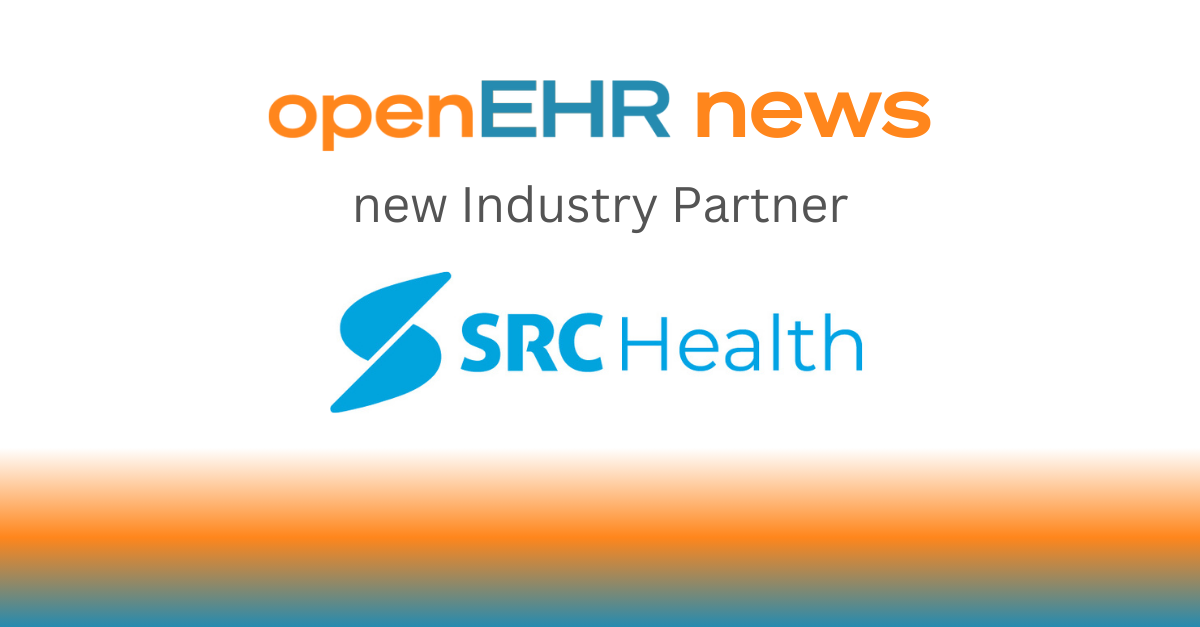SRC Health has joined openEHR as a silver-level industry partner. We caught up with Mojca Cvirn, SRC’s Operations & People Manager, to learn more about the company.
What is the focus of SRC’s work?
SRC Health is the leading software vendor in the Slovenian healthcare sector, with a team of over 100 experts dedicated to developing digital health solutions. Our core expertise lies in developing specialised health IT systems for hospitals, primary care providers, and private clinics, with a strong emphasis on clinical safety, scalability, and standard-based interoperability. Our portfolio includes a comprehensive electronic health record (EHR) solution, eTTL – inpatient care seamlessly integrated with the EHR, mobile health (mHealth) applications, and national infrastructure solutions such as ePrescription developed in collaboration with public eHealth initiatives.
We are committed to leveraging open standards, including openEHR, HL7 FHIR, and IHE profiles, to ensure long-term sustainability, semantic consistency, and integration across diverse healthcare systems. As a trusted partner in digital transformation, SRC Health supports the evolution towards modular, patient-centered, and data-driven healthcare. Our vision is to empower healthcare professionals with intelligent tools that enhance clinical decision-making and operational efficiency.
What openEHR projects are you working on at the moment?
We’re currently focused on an internal initiative to modularise our approach as a healthcare solution provider and developing solutions architecture, with the aim of enhancing salability, maintainability, and operability across our portfolio. As part of this effort we are incorporating, among other, standard openEHR. openEHR is primarily used for modeling and storing structured medical data where it aligns with national guidelines. Thus, we are also integrating openEHR into selected components which are integrated to the national health central infrastructure, contributing to the broader effort to standardise and streamline health data exchange at a national scale.
As medical data becomes increasingly distributed and actionable, we place strong emphasis on cybersecurity, ensuring compliance with data protection regulations and applying robust security-by-design principles across all layers of our architecture.
Do you work outside of Slovenia as well?
We are also expanding our presence internationally, particularly in the Balkan region. A notable example is our collaboration with the Oncology Institute of Vojvodina in Novi Sad, where our hospital information system (HIS) and seamlessly integrated digital clinical pathways are actively used to support and guide comprehensive patient journey tracking that spans all diagnostic stages, form initial triage to the final diagnosis, presentation to MDTB for treatment decisions and treatment journey. These solutions help standardise treatment protocols, improve clinical decision-making, and enhance overall care coordination as it eliminates the need for paper records and other ways of fragmented tracking. The system is integrated with e-health national infrastructure and applications such as the Registry of Cancer, EPOS, and EVUZ. Our work abroad reflects our commitment to delivering adaptable, high-quality healthcare IT solutions beyond national borders.
Could you tell us a little bit more about your vision for the future of health data?
The future of health data isn’t primarily about gathering more data – it’s about making the data we already have accessible, connected, and actionable across diverse systems. The real transformation lies in semantic interoperability – ensuring that data retains its meaning and utility wherever it’s used. A mix of open standards plays a key role by providing a consistent framework for structuring medical data, enabling seamless integration and reuse. This level of structured data is also critical for the development of trustworthy AI models, paving the way for more accurate predictions, personalised care, and data-driven decision-making in healthcare.
Where are you hoping to go next with openEHR?
Our immediate goal is to complete the modularisation of our current solution and designs to increase flexibility and to simplify integration with other systems.
Looking ahead, we aim to contribute to the national eKarton (eEHR) project, where we see the opportunity to apply our expertise in support of broader healthcare digitalisation efforts at the national level.

Leave a Reply